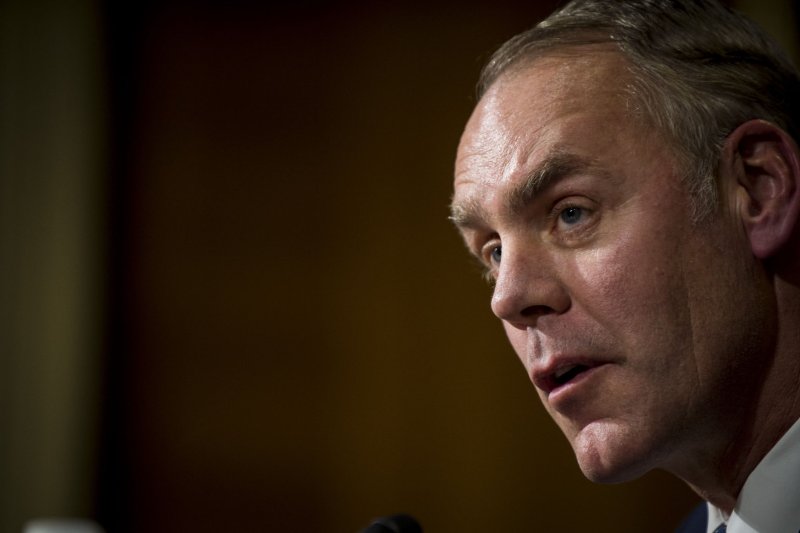U.S. Interior Secretary Ryan Zinke testifies before the Senate Committee on Energy and Natural Resources on a budget request for $11.8 billion. About $800 million is targeted for energy-related programs. File photo by Pete Marovich/UPI |
License Photo
March 14 (UPI) -- U.S. Interior Secretary Ryan Zinke, in his defense of a strategy of energy dominance, is out of step with the will of the people, his critics said.
Zinke testified before the Senate Energy and Natural Resources Committee to explain a 2019 budget request for $11.8 billion. Of that, $792 million was requested for energy-related programs, with about half of that targeting the U.S. Outer Continental Shelf.
A five-year lease program proposed by the federal government, and opened for public comment, called for 19 lease sales offshore Alaska, seven in the Pacific Region, 12 in the Gulf of Mexico and nine in the Atlantic.
Florida is at the heart of the debate over President Donald Trump's offshore energy agenda. In January, Zinke told Florida Gov. Rick Scott his state was removed from drilling consideration, but Walter Cruickshank, the acting director of the Bureau of Ocean Energy Management, later testified that wasn't the case.
During his testimony before the Senate, Zinke too added that Florida was "still in the process."
Florida Petroleum Council Executive Director David Mica said last month that putting Florida on the map could bring in new sources of revenue and create a new economic segment for a state that's heavily dependent on tourism. But Sen. Bill Nelson, D-Fla., said during the hearings that was something his constituents didn't want to hear.
"This is exactly the opposite of what the people of Florida want," he said.
Elsewhere, Zinke's department set 23,000 acres of Montana land on the auction block for oil and gas drillers to the disdain of the environmental community. Some of that land is considered vital to the conservation of the sage grouse.
"Zinke's rushing through these fossil-fuel leases and disregarding major threats to communities and wildlife," Taylor McKinnon with the Center for Biological Diversity said in a statement. "It's like the Wild West out there."
Zinke had earlier put more than 17,000 acres off limits to drillers, saying some of the Montana landscape was not appropriate for energy development.
The federal government estimates the Gulf of Mexico will produce an average 1.7 million barrels of oil per day, compared with more than 8 million bpd in the Lower 48. Representatives from the energy sector have generally embraced President Trump's unraveling of bureaucratic red tape, but have recently been critical of steel and aluminum tariffs that could make oil and gas infrastructure more expensive.
Total U.S. production in crude oil alone is on pace to put the country in a global leadership position.















